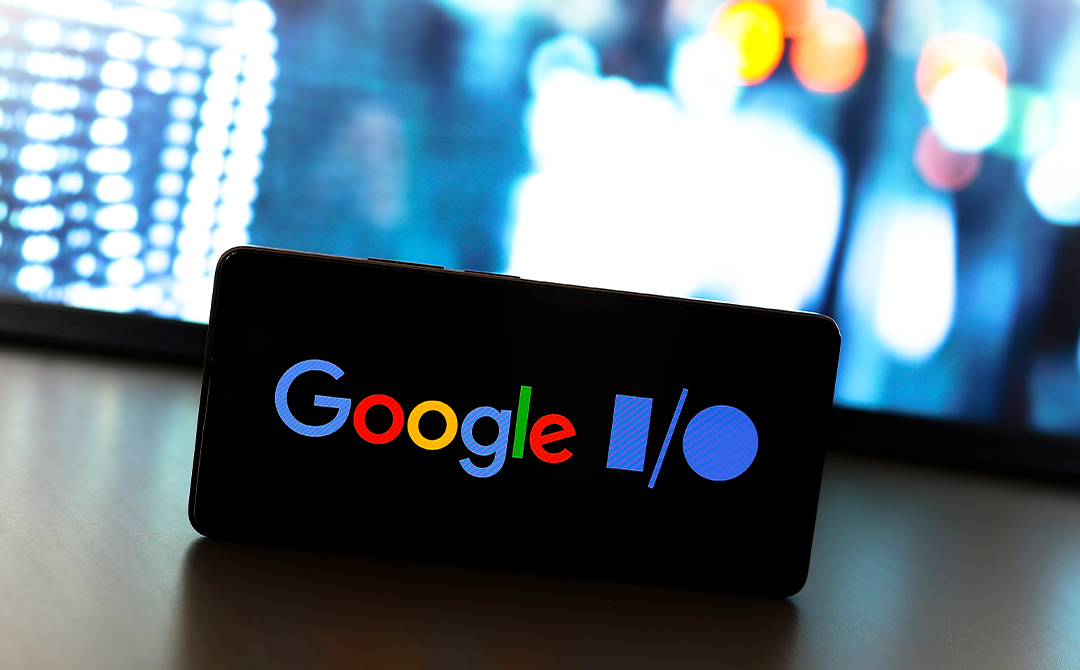
Google I/O 2025, the annual developer conference, served as a pivotal platform for unveiling the latest advancements in Artificial Intelligence, Android, and developer ecosystems. This summary captures the anticipated key product and platform updates from the event, along with strategic observations for enterprise leaders across various verticals looking to accelerate their AI adoption journeys and leverage these innovations for competitive advantage.
Artificial Intelligence (AI) Models & Capabilities
As expected, Google I/O 2025 showcased the continued evolution of the Gemini family of AI models, with a strong emphasis on on-device AI and specialized, efficient models. Anticipated announcements include:
- Gemini Nano Enhancements: Significant improvements to the smallest Gemini models, optimized for low-latency, privacy-preserving AI directly on mobile devices and edge hardware. This includes enhanced multimodal understanding for real-time interactions.
- Context Window Expansion & Efficiency: Further increases in context window sizes for larger Gemini models, coupled with breakthroughs in efficiency, making them more cost-effective for complex enterprise applications.
- New Generative AI Modalities: Expansion of generative capabilities beyond text and images, potentially including more sophisticated audio, video, and 3D content generation directly from prompts, accessible via new APIs.
- Open Models (Gemma Family): Continued commitment to open-source AI with new, more powerful, and versatile models in the Gemma family, fostering broader innovation and customization.
Observation & Enterprise Benefits:
These advancements in AI models offer businesses unprecedented opportunities for intelligent automation and personalized experiences.
- CPG & Retail: On-device AI enables hyper-personalized recommendations, real-time in-store assistance, and enhanced customer service with immediate, privacy-preserving responses. Generative AI can rapidly create tailored marketing content and product visuals.
- Banking & Insurance: Enhanced Gemini models with larger context windows can process vast amounts of financial data for fraud detection, risk assessment, and personalized financial advice, while on-device AI can secure sensitive user interactions.
- Health: Secure, on-device AI can process patient data for preliminary diagnostics, personalized health insights, and secure communication, adhering to strict privacy regulations. Generative AI can assist in medical content creation and research summarization.
- TMT (Tech, Media, Telecom): New generative modalities revolutionize content creation, media production, and interactive experiences. Efficient models support large-scale content moderation, network optimization, and personalized media delivery.
Developer Platforms & Tools
Announcements made at Google I/O 2025 further empower developers with AI-first tools and platforms. Key updates include:
- Firebase AI Integrations: Deeper integration of Gemini and other AI capabilities directly into Firebase services, simplifying the development of AI-powered mobile and web applications. This could include AI-assisted backend development and data processing.
- Android & Flutter AI SDKs: Enhanced Software Development Kits (SDKs) for Android and Flutter, providing easier access to on-device AI capabilities, including specialized APIs for multimodal input, generative AI, and privacy-preserving machine learning.
- Project Astra & Agentic Development: Further details and developer tools for Project Astra, Google's vision for universal AI agents, enabling developers to build more sophisticated, context-aware, and proactive applications. This includes new APIs and frameworks for agent orchestration.
- AI-Powered IDE Enhancements: Significant upgrades to developer environments (e.g., Android Studio, VS Code extensions) with advanced AI coding assistance, intelligent debugging, and automated code generation, leveraging Gemini Code Assist.
Observation & Enterprise Benefits:
These developer-centric announcements streamline the creation and deployment of AI-powered solutions, accelerating time-to-market and significantly boosting development productivity.
- Simplified AI integration, coupled with AI-powered IDEs and robust SDKs, means faster development cycles and reduced manual effort for custom applications across all industries. This directly translates to lower development costs and a quicker realization of value from AI investments. Enterprises can now build robust, scalable, and efficient data platforms in a fast and cost-effective manner, leveraging automated code generation, intelligent debugging, and seamless integration of AI capabilities into their existing workflows.
Cross-Platform AI Integration & User Experience
Google I/O 2025 helps to highlight how AI is becoming seamlessly integrated across Google's entire ecosystem, enhancing user experiences and enabling new forms of interaction. Anticipated announcements include:
- Gemini in Workspace & Search: Deeper integration of Gemini's advanced reasoning and generative capabilities into Google Workspace applications (Docs, Sheets, Slides) and Google Search, offering more intelligent assistance, summarization, and content creation.
- Android AI Features: New AI-powered features directly within the Android operating system, such as enhanced contextual awareness, proactive suggestions, and advanced photo/video editing capabilities leveraging on-device AI.
- Ambient Computing & Multimodal Interaction: Advancements in AI that enable more natural and intuitive interactions across various devices (phones, smart displays, wearables), utilizing voice, vision, and touch in concert.
- Chrome & Web AI: New web platform capabilities and APIs that allow developers to integrate AI directly into web applications, enabling richer, more dynamic, and personalized web experiences.
Observation & Enterprise Benefits:
The pervasive integration of AI across platforms translates into more intelligent operations and enhances customer engagement across all industries.
- Businesses can expect improved productivity through AI-assisted workflows in daily tasks, better data discovery in search, and more personalized customer interactions across all digital touchpoints. This fosters innovation in service delivery, operational efficiency, and overall user satisfaction, enabling enterprises to create highly responsive and intelligent ecosystems.
Responsible AI & Privacy
Summary:
Google I/O 2025 is expected to underscore Google's unwavering commitment to developing AI responsibly and prioritizing user privacy. Anticipated announcements include:
- Enhanced AI Safety Tools: New tools and frameworks for developers to build safer AI applications, including improved content moderation APIs, bias detection, and explainability features.
- Privacy-Preserving AI Techniques: Further advancements in federated learning, differential privacy, and secure enclaves, allowing AI models to learn from data without compromising individual user privacy.
- Transparency & Control: Greater transparency for users regarding how AI processes their data and more granular controls over their AI experiences and data sharing preferences.
- Ethical AI Guidelines & Best Practices: Publication of updated guidelines and best practices for ethical AI development and deployment, encouraging responsible innovation across the ecosystem.
Observation & Enterprise Benefits:
A strong focus on responsible AI and privacy builds trust with customers and ensures compliance in sensitive industries.
- Banking, Insurance & Health: Absolutely critical for maintaining trust and complying with stringent regulations (e.g., GDPR, HIPAA). Privacy-preserving AI allows for valuable insights without compromising sensitive customer or patient data.
- CPG & Retail: Ensures fair and unbiased AI-driven marketing and personalization, avoiding discriminatory practices and enhancing brand reputation.
- TMT: Responsible content moderation and personalized recommendations that respect user privacy and avoid harmful content.
Data & Analytics for Mobile & Edge
Google I/O 2025 showcased new ways to leverage data generated at the edge and on mobile devices, integrating it seamlessly with cloud analytics platforms. Key announcements include:
- On-Device Data Processing: Enhanced capabilities for processing and analyzing data directly on mobile devices, reducing latency and bandwidth requirements while preserving privacy.
- Edge-to-Cloud Data Synchronization: Improved frameworks and APIs for securely and efficiently synchronizing relevant insights from edge devices to Google Cloud for deeper analysis and model retraining.
- Analytics for Mobile Apps: New tools and dashboards within Google Analytics and Firebase Analytics specifically designed to provide richer insights into user behavior within AI-powered mobile applications.
- Personalized Data Insights: AI-driven insights derived from on-device data, enabling highly personalized experiences and proactive suggestions for users, while maintaining data privacy.
Observation & Enterprise Benefits:
Optimizing data flow from edge to cloud unlocks new analytical capabilities and drives hyper-personalization.
- CPG & Retail: Real-time insights into customer behavior in physical stores or on mobile apps, enabling dynamic pricing, personalized promotions, and optimized inventory.
- Banking & Insurance: On-device anomaly detection for fraud, personalized financial health insights, and efficient processing of claims data at the source.
- Health: Real-time monitoring of patient vitals from wearables, personalized health coaching, and efficient data collection for clinical trials.
- TMT: Optimized content delivery based on real-time user engagement data on devices, personalized advertising, and efficient management of large-scale media assets.
Conclusion
The key advancements from Google I/O 2025 represent a significant leap forward in the pervasive integration of AI across consumer experiences and developer ecosystems. These innovations in AI models, developer tools, cross-platform integration, responsible AI, and edge data processing provide immense opportunities for organizations to improve their AI capabilities. By leveraging these advancements, companies can drive more efficient, accurate, and scalable AI-driven outcomes, positioning themselves at the forefront of AI innovation. The strategic focus on making AI accessible, powerful, and responsible signals a clear direction for businesses aiming to transform their operations and customer experiences in the coming years.
Reach out to Tredence for a complimentary workshop to explore how these latest announcements can accelerate your Data & AI strategy.

AUTHOR - FOLLOW
Abhijit Choudhary
Senior Director
Next Topic
Impact of Latest Tariff Changes on Businesses and Supply Chain Landscape
Next Topic




